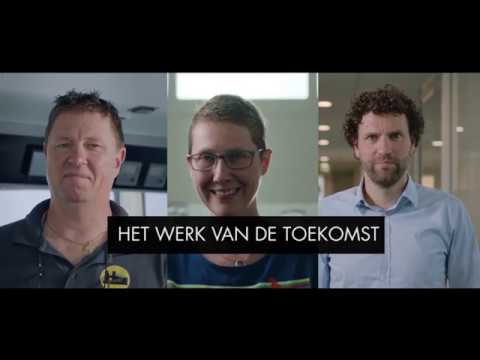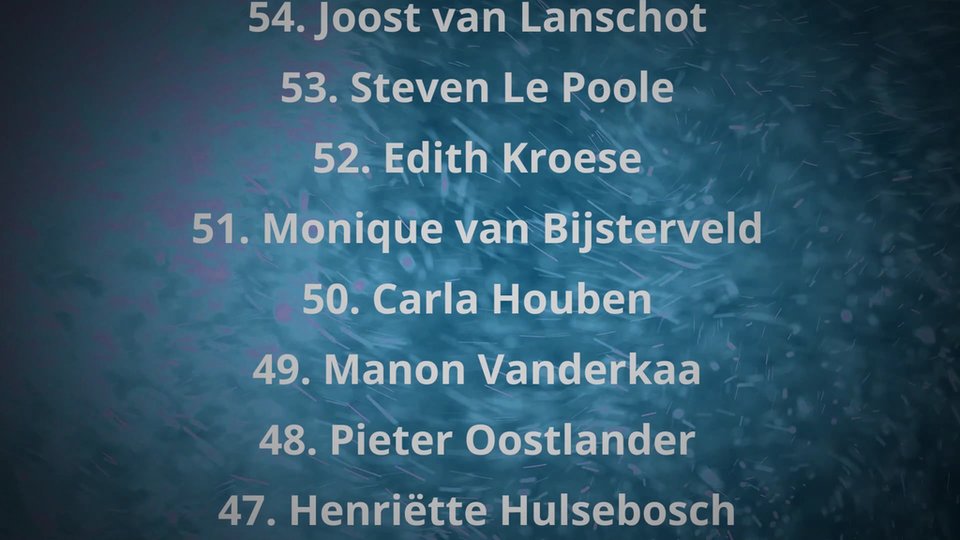Life Sciences & Health
Other News from the Life Sciences & Health Sector
Read about some fantastic developments in the Dutch Life Sciences & Health (LSH) sector last year. Some of these developments will influence the sector in 2019 and beyond. Check out some of these Dutch pearls below.

Patient Engagement Guide ›
Helping companies to engage patients in drug development.
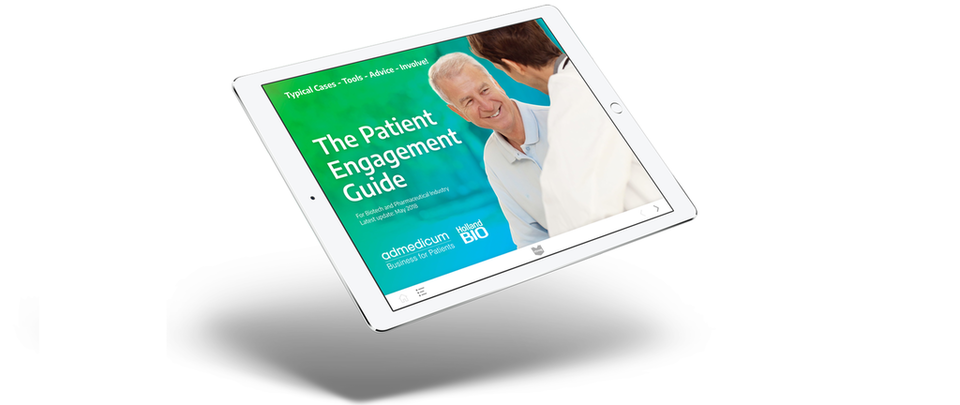
The Patient Engagement Guide helps companies to engage patients in drug development
admedicum and HollandBIO teamed up in 2018 to jointly launch the Patient Engagement Guide (PEG). This practical online manual helps companies incorporate the patient’s voice within their organisation, in a structural and guiding manner. Engagement of patients in every phase of drug development is crucial for a faster and better drug development process.
Biotech delivers revolutionary new medicines and therapies. However far too many patients are still left empty-handed.
Annemiek Verkamman, HollandBIO
In the programme “Faster and Better from bench to bedside”, HollandBIO collaborates with biotech frontrunners to create solutions that improve and speed up the drug development process. ‘Biotech delivers revolutionary new medicines and therapies. However far too many patients are still left empty-handed,’ says HollandBIO director Annemiek Verkamman. ‘In order to give those patients hope for effective personalised treatments, we urgently need to develop solutions that combine health, innovation and affordability.’
One of those solutions is a central role for the patient perspective in every phase of the drug development process. A patient knows best what a drug should do to make an impact. Additionally, a patient’s first-hand experience can boost the drug development process in terms of both progress and quality. Patient engagement therefore not only leads to faster access to better drugs, but it also makes a lot of sense from a business perspective.
‘Engaging patients may seem obvious and easy to do at first sight,’ says Philipp von Gallwitz, Co-Founder and Managing Partner of admedicum Business for Patients. ‘In practice, however, it quickly becomes clear that it is highly complex and requires skills, experience and networks new to many companies. It all comes down to a key question: how to organise patient engagement in a way that is meaningful and adds value for all parties concerned? Our experience shows that the required skills and insights don’t come naturally to every organisation.’
To offer companies a helping hand, HollandBIO and admedicum teamed up to develop the PEG. The PEG is an online guide that zooms in on real-world patient engagement cases, providing an extensive amount of information and insights on this topic. Additionally, the guide contains very practical tools and checklists, which allow every organisation to get into gear and discover the mutual benefits of patient engagement.
Want to learn more about the PEG?
The PEG is accessible through www.patientengagement.guide. Click on “go to edition”, fill in the required fields and you will receive an access link via e-mail. Want to know more, or contribute with input and feedback? Contact Britt van de Ven (HollandBIO) or Philipp Gallwitz (admedicum).
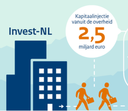
Invest-NL creates opportunities for startup and scaleup investments›
Finances innovation with societal impact.
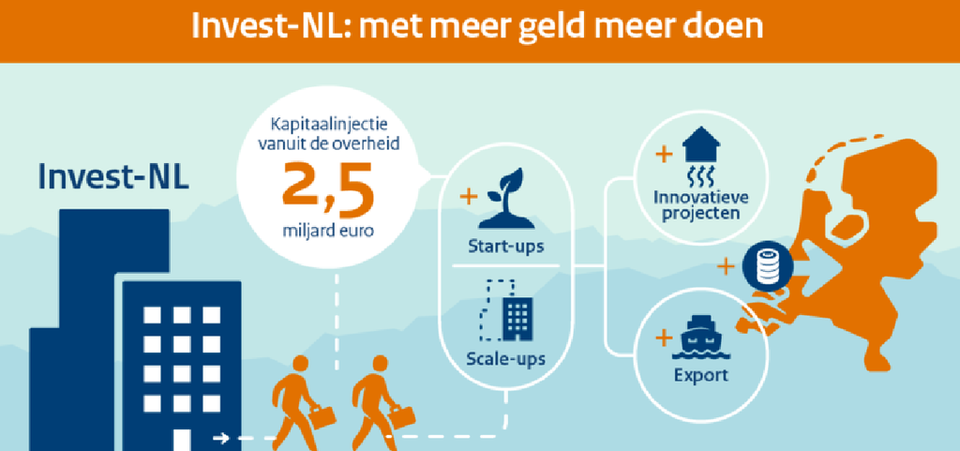
Invest-NL creates opportunities for startup and scaleup investments
In 2017, the previous Dutch Cabinet announced the start of a new investment and development institution called Invest-NL. Over the past few months, the new institution has gradually been taking shape. In the summer of 2018, the Dutch government announced that Wouter Bos would be the head of Invest-NL. With his management experience in both the public and private sector, he was appointed as the ideal candidate to start building Invest-NL. This January, the current Dutch Cabinet submitted the bill with the authorisation for the founding of Invest-NL. The establishment of this new investment institution provides excellent opportunities for companies active in the Life Sciences & Health sector.
Invest-NL has a clear mission: finance and realise innovation with societal impact that the market does not currently provide. Invest-NL has an investment task with € 2.5 billion in capital for a period of five years. The legislative proposal describes some preconditions for the investment policy, such as addressing the intended economic and/or social return. One of the themes mentioned within the investment domains is health and care. Invest-NL will assist startups and scaleups: innovative businesses that are still setting up or have just begun expanding their activities and require capital for further growth.
Startups and scaleups in the life sciences sector are following Invest-NL with great interest, and rightly so. Invest-NL could offer additional capital and thereby help to bridge the current gaps in the funding landscape.
Annemiek Verkamman, HollandBIO
Invest-NL has a clear mission: finance and realise innovation with societal impact that the market does not currently provide. Invest-NL has an investment task with € 2.5 billion in capital for a period of five years. The legislative proposal describes some preconditions for the investment policy, such as addressing the intended economic and/or social return. One of the themes mentioned within the investment domains is health and care. Invest-NL will assist startups and scaleups: innovative businesses that are still setting up or have just begun expanding their activities and require capital for further growth.

National Prevention Agreement ›
More than 70 parties joined forces to make the Netherlands healthier and reduce health inequalities.
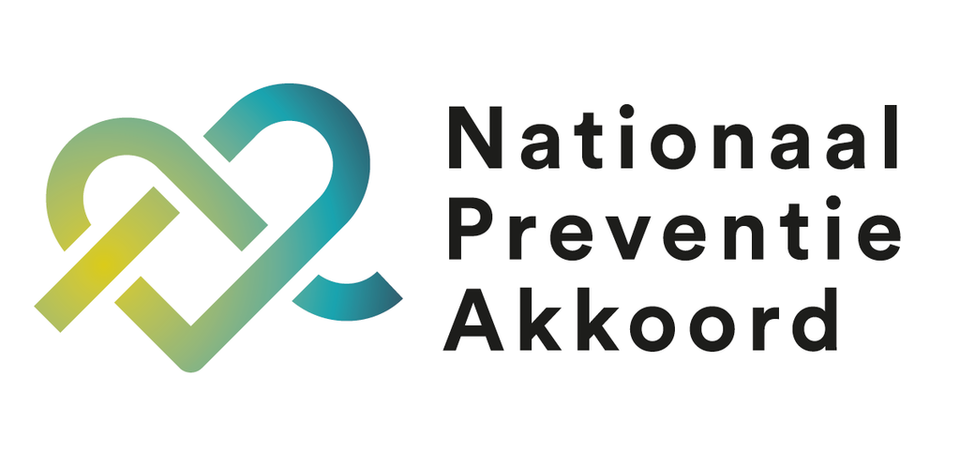
National Prevention Agreement improves the health of Dutch citizens
In the national prevention agreement, more than 70 parties joined to make the Netherlands healthier and reduce health inequalities. The agreement consists of an extensive package of targets and measures for the reduction of smoking, obesity and alcohol abuse. With unified powers, the participants wish to achieve a smoke-free generation in 2040, the prevention of alcohol use among the youth and pregnant women, a greater awareness of the risks or alcohol and a decrease in obesity among citizens instead of an increase. On behalf of the Dutch government, state secretary Blokhuis of the Ministry of Health, Welfare and Sport, sent the National Prevention Agreement to the Dutch House of Representatives.
High urgency
State Secretary Blokhuis: 'Smoking, obesity and alcohol abuse cause major health problems for many people. On a yearly basis, approximately 20,000 Dutch citizens die because of the effects of smoking. Obesity is without a doubt the second most important cause of cardiovascular diseases and even 40% of diabetes type 2 patients. Each year, alcohol causes about 3,000 cases of cancer and is the main supplier of addiction care. So there is a high urgency. That is why we come into action together with the National Prevention Agreement, which is on top of the good initiatives that already exist. I am incredibly proud of the constructive way all the parties involved collaborate. We can make a stand for a healthier Netherlands.'
Somehow we collectively lost sight on the enormous added value of prevention with respect to longevity of mankind and socioeconomic prosperity. The recently promoted revival of prevention – in a broad sense – urges all of us not just to consider “What prevention can do for you?”, but all the more “What you can do for prevention”, both now and especially for the generations to come.
Nico van Meeteren, Top Sector LSH
The start of a movement
RIVM’s first analysis proved that the measurements of the National Prevention Agreement have a positive effect on reducing smoking, obesity and alcohol abuse and consequently on the health of all Dutch citizens. However, the high ambitions of the agreement with this package of measurements will not be achieved within the timeframe set. A smoking free generation in 2040 might be possible with the current measures and is, according to RIVM, feasible if additional measures are taken for young people and pregnant women. In the area of obesity and alcohol abuse, RIVM notes that the high ambitions – like reversing the trend towards obesity – requires stricter measurements. Based on this analysis, the parties involved concluded that with the National Prevention Agreement, the most important step towards the desired goal has been set. It is the start of a movement. For further steps, support from society is required. The high ambitions will be preserved by and for all stakeholders.
More than 70 parties involved
With the National Prevention Agreement more than 70 societal organisations, companies, branch organisations, patient organisations, care providers, health insurers, municipalities, foundations, sports federations, education institutes and the government work together on a broad movement that makes the Netherlands healthier and more vital.
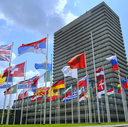
Foreign companies: an asset to our economy and innovation ecosystem ›
The importance of a good acquisition policy.
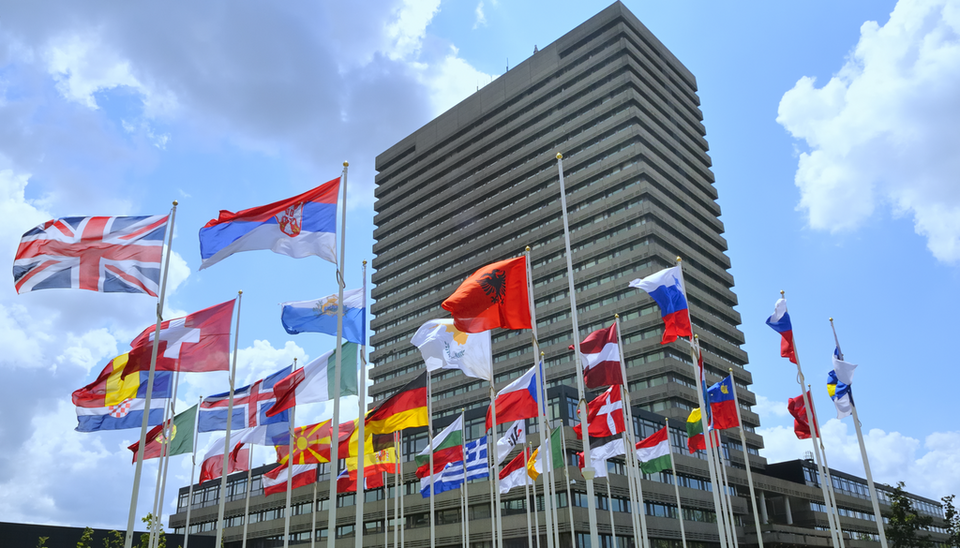
Foreign companies: an asset to our economy and innovation ecosystem
The Netherlands provides a highly attractive international business environment with wide-ranging scope for innovation. Therefore, one of the most concentrated Life Sciences & Health clusters in the world, is now home to over 15,000 foreign companies. These foreign companies make a positive contribution to the Dutch economy and society.
The importance of a good acquisition policy
In the Netherlands, foreign companies contribute significantly to our economy. The 15,000 foreign companies located in the Netherlands account for approximately 18% of the added value of the Dutch economy. Furthermore, these companies provide over 800,000 full-time jobs, a significant proportion (11%) of Dutch employment. On top of that, given the strong interrelation between these companies and the Dutch economy, these foreign companies provide an additional 500,000 indirect jobs. Due to this interrelation, foreign companies are the gateway for SMEs to international markets and the SMEs are important suppliers for the foreign companies.
The acquisition of foreign companies can also strengthen the Dutch innovation ecosystem. In 2016, these companies invested €2.4 billion in Dutch R&D. This accounts for almost 30% of the total private R&D expenditure. Almost 24,000 employees from foreign companies worked on R&D activities: 30% of all private R&D employees in the Netherlands. Furthermore, foreign companies indirectly increase the innovative capacity of the Dutch economy. The presence of innovative international multinationals is beneficial for domestic companies if it gives them access to new technologies.
Global missions as guidelines for a new acquisition strategy
Dutch society benefits from the acquisition of foreign companies as they add employment, innovation and strength to our economy. Therefore, the Ministry of Foreign Affairs and Development Cooperation and the Ministry of Finance will further strengthen its acquisition policy. The missions of the new mission-driven innovation policy will guide the acquisition strategy that will be effective in 2020-2025. Consequently, the acquisition policy will not only reflect the sectors but also the topics in which the Netherlands has a strong position.
Source: Government

Professions in transition through digitalisation›
It is already happening now.
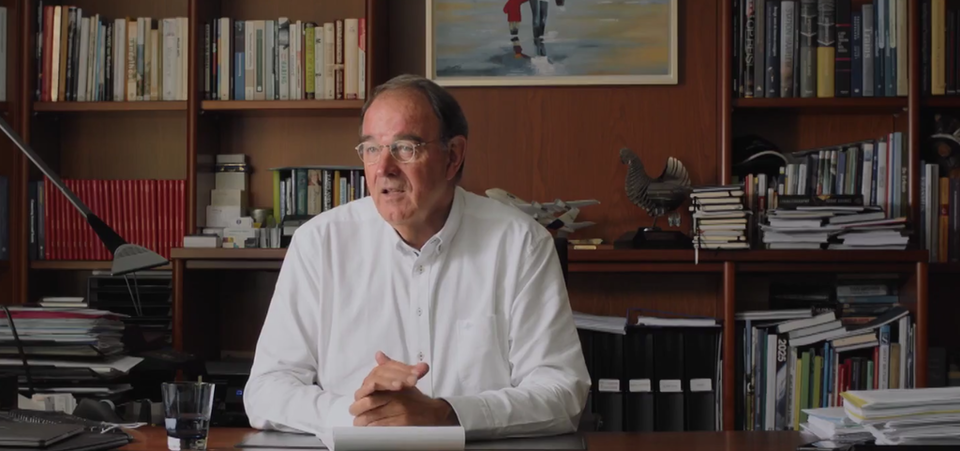
Professions in transition through digitalisation
When it comes to change due to digitisation, then people think all too easily about future jobs. However, it is already happening now; digitalisation affects people in their work, and professions have already changed a lot. The top sectors bring this into view with the film "Professions in transition". The film was shown during the Annual Conference Technology Pact on 18 June 2018. After the summer, the report “Professions change – 21st-century skills in practice” was published based on the interviews and research.
Digitalisation influences us all
Aad Veenman, ambassador of the Top Sector Logistics: ‘Many societal developments are influencing professions, and one that plays a decisive role is digitalisation. You can hardly imagine a field where the impact is not great. It is important that people feel supported by digitalisation and not threatened. A call to industry and government is to be aware of the changes, imagine what these means for people, and look for ways to enable people to learn and develop for a lifetime.’
Labour market research
Worldwide, developments such as digitisation, globalisation and ageing mean that we need to rethink the organisation of our society. The design and implementation of effective policy at the intersection of education and the labour market require knowledge of the figures across all top sectors. Commissioned by The Netherlands ICT, together with the top sectors, Berenschot and CenterData published a report on how digitalisation has impacted the labour market of the top sectors and which 21st-century skills should be prepared for the changes brought by technology and digitalisation.
Get inspired by the stories of the professionals during their daily routines in the video below. Alternatively, read the full report: “Professions change - 21st-century skills in practice.” (in Dutch).

200 million euros for SMEs ›
State Secretary Mona Keijzer presented SME action plan.

200 million euros for SMEs
State Secretary Mona Keijzer presented SME action plan
With the in June presented SME action plan, the Council of Ministers has agreed to the proposal of the State Secretary for Economic Affairs and Climate Policy (Mona Keijzer). During the year 2018, the state secretary undertook an “SME tour” through the Netherlands and talked to entrepreneurs about their three biggest challenges: staff, digitalisation and funding. This SME tour included some familiar faces like the companies at Pivot Park and Leiden Bioscience Park. The SME action plan will enable small and medium-sized enterprises to tackle these challenges. The government has made 200 million euros available for this until 2021.
SMEs face a variety of dilemmas: How do I get skilled staff members? How do I collect funding? Can I benefit from the opportunities of digitalisation? The government will play a more powerful role in these challenges. In doing so, together we make the entire SME stronger, more efficient and more productive.
Mona Keijzer, Ministry of Economic Affairs and Climate Policy
Maintaining and intensifying the current regulations
The money from the action plan will be spent on maintaining and intensifying the current regulations. Apart from the expansion of innovation instruments like the Innovation Credit, the MIT regulation and the SBIR programme, money will be made available for the SEED regulation, and there will be more attention for human capital. Furthermore, there will be a regulation for Thematic Technology Transfer to connect research institutions conducting excellent research on specific themes, so that knowledge utilisation is improved.
A strong entrepreneurial climate
The plans are in addition to the new investment institution Invest-NL. The SME action plan safeguards and enhances existing stimulation measures for SMEs. Invest-NL and the SME action plan will contribute to a well-conceived funding mix for businesses in the LSH sector. With these two initiatives, the government is realising the ambitions stated in the coalition agreement to strengthen the entrepreneurial climate in the Netherlands.
For more information about the SME action plan consult the official announcement.

Director of Dutch Kidney Foundation, Tom Oostrom, elected as the most influential person in philanthropy ›
Honourable LSH mentions in De Dikke Blauwe top 100.
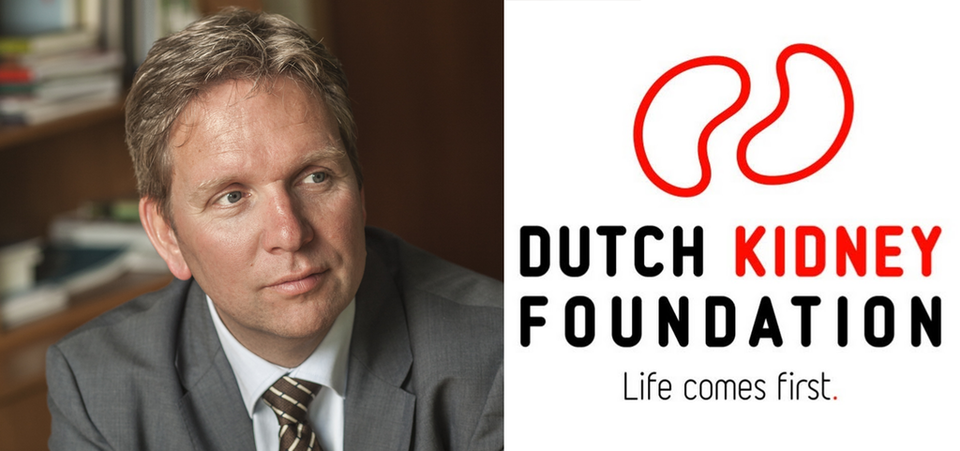
Director of Dutch Kidney Foundation, Tom Oostrom, elected as the most influential person in philanthropy
But also other honourable Life Sciences and Health mentions in De Dikke Blauwe
Tom Oostrom, director of the Dutch Kidney Foundation, has been elected ‘most influential person in Dutch philanthropy’ by the news magazine De Dikke Blauwe. He therefore takes over the number 1 position in De Dikke Blauwe top 100 from Laurentien van Oranje, who finished on top of the list last year. The jury praises Oostrom for his proactive entrepreneurship and innovation ability. Under his leadership, the Dutch Kidney Foundation has been transformed from a traditional charity foundation to a societal enterprise with a clear ambition: curing kidney diseases.
It is a great appreciation for the things we as the Dutch Kidney Foundation, our volunteers, patients, donators and everyone who supports our mission achieve. A recognition for the course we are sailing. Relevance and entrepreneurship are essential for achieving innovation and impact.
Tom Oostrom, Dutch Kidney Foundation
The jury praises Oostrom, who started his career as a nurse: ‘Tom Oostrom is a very credible leader of his organisation, who knows his mission, and feels and lives outside of the paper-made reality. Typical for his social entrepreneurship is his active contribution to the collaboration bond RegMed XB and the development of the portable artificial kidney. Oostrom started the latter with his foundation because the market passed up on that innovation. Oostrom has a very tangible drive: working towards a real solution for patients – being able to cure kidney diseases.’
Other honourable mentions in the Life Sciences and Health sector
#9 Floris Italianer
Floris Italianer has been director of the Dutch Heart Foundation since May 2013. Italianer is also a board member of the Alliance NederlandRookvrij! and Vice President of the European Heart Network. He is also a member of the Advisory Council of the Durrer Center and the Strategic Health Area TU Eindhoven. The Dutch Heart Foundation and the Top Sector Life Sciences and Health (LSH) are both partners of the Dutch CardioVascular Alliance (DCVA). DCVA is a new partnership of 12 organisations, scientists and healthcare professionals in the field of cardiovascular research.
#14 Michael Rutgers
Michael Rutgers has been director and general manager of the Dutch Lung Foundation since March 2006. Rutgers is also a board member of the Alliance Nederland Rookvrij!, director of the Dutch Lung Alliance and chairman of the Joint Health Funds. He is also a member of the Board of Directors Huis voor de Gezondheid and the Board of Deputies ONVZ.
#81 Nico van Meeteren
Professor Nico van Meeteren currently serves as Executive Director and Secretary General of the Top Sector LSH and as Professor of Physiotherapy, Physical Functioning with Chronic Disease at Maastricht University. Furthermore, Van Meeteren holds several national and international policy, board and research positions in line with his LSH and Maastricht University positions and his field of expertise. As an innovator, Van Meeteren has initiated and inspired many innovative concepts such as “Better in, Better out” and the “Vitaal Vechtdal” platform of the Ministry of Health, Welfare and Sport.
De Dikke Blauwe is viewed as an independent journalistic guide within philanthropy.
Source: Dutch Kidney Foundation
Watch the short film that lists the names in the De Dikke Blauwe top 100:
